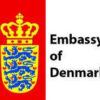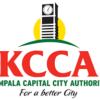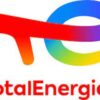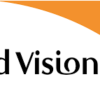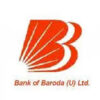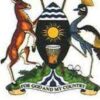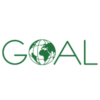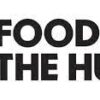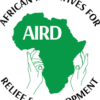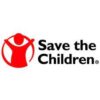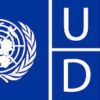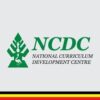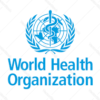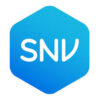1. SNV Information.
In May 2018, the Netherlands Ministry SNV is a not-for-profit international development organization that applies practical know-how to make a lasting difference in the lives of people living in poverty. We use our extensive and long-term in-country presence to apply and adapt our top-notch expertise in agriculture, energy, and water to local contexts. SNV has over 1,600 staff in more than 20 countries in Asia, Africa, and Latin America. We are proud to be a not-for-profit organization that uses project financing to implement our mission. This requires us to work efficiently and to invest in operational excellence.
In its new Strategic Plan period (2022-2030), SNV will aim to deepen partnerships with financial institutions, governments, and private sector to expand our impact driven finance portfolio. We will continue to position ourselves as a premium organization and invest in making knowledge flow to and from the frontline and catalyse partnerships that transform the agri-food, energy and water systems which enable sustainable and more equitable lives for all. For more information on SNV’s operations, visit our website: www.snvworld.org.
2. Project Background.
SNV Netherlands Development Organisation in partnership with the four district local governments of Lira, Dokolo, Kole and Alebtong is implementing a three-year (November 2022 to October 2025) Sustainable Water Supply, Sanitation and Hygiene for All (SWaSSH4A) project, funded by Austrian Development Agency (ADA). The project is expected to realise the following results by the end of the project life: 237,500 people have sustained access to safe water supply and are reached through hygiene promotion activities; 50,000 gain access to improved climate resilient sanitation; 40,000 people gain access to basic handwashing with soap.
The project has two components; water supply and sanitation and hygiene. The first year of implementation of the project ends in December this year. This implies that there are less than 2 months remaining for the implementation of the project activities in the first year.
It is against the above background that SNV Uganda requires the services of a Sanitation and Hygiene Consultant on a short-term contract, to support implementation of specific sanitation and hygiene project activities, working hand in hand with the project officer, sanitation and hygiene.
Job Description
3. Objective of the assignment.
The main objective of the assignment is to develop and test sanitation business models, market package for sanitation options and sanitation demand creation methodologies in the project districts of Dokolo, Lira, Kole and Alebtong.
4. Scope of the assignment.
The consultant is expected to undertake the following tasks among others:
General:
Conduct a comprehensive analysis of the local sanitation market to understand the current demand, supply, and existing barriers. This may involve surveys, interviews, and data collection.
Engage with local authorities, NGOs, community leaders, and potential sanitation service providers to gather insights and build partnerships.
Work on crafting viable business models for sanitation services. This may include examining various financing options, pricing strategies, and revenue models.
Collaborate with stakeholders to develop sanitation options and packages that are tailored to the local context and market demands.
Develop a sanitation catalogue for different sanitation options.
Develop marketing and awareness campaigns to create demand for sanitation services and options. This might include educational programs, advertising, and community outreach.
Implement pilot projects to test the proposed business models and sanitation options in a real-world context, making necessary adjustments based on feedback and performance.
Develop plans for scaling successful models and approaches to reach a larger population.
Set up a system for ongoing monitoring and evaluation to assess the impact and effectiveness of the developed models, packages, and demand creation methodologies.
Evaluate the costs and benefits of different sanitation options to ensure affordability and sustainability for end-users.
Expected outputs:
Sanitation Business Models: Developed and well-documented sanitation business models that are economically viable and sustainable.
Sanitation Options and Packages: Defined and market-ready sanitation options and packages that cater to the needs and preferences of the target population.
Market Analysis Report: A comprehensive report on the local sanitation market, including demand, supply, competition, and potential for growth.
Marketing and Awareness Campaigns: Designed marketing and promotion materials, such as brochures, posters, and radio/TV advertisements, to create awareness and stimulate demand for sanitation services.
Training Programs: Training modules and materials for capacity building and skill development of sanitation service providers.
Pilot Project Results: Evaluation and assessment reports from pilot projects, including lessons learned and recommendations for improvements.
Monitoring and Evaluation Framework: Established systems and tools for ongoing monitoring and evaluation of the sanitation business models, packages, and demand creation strategies.
Policy and Regulatory Recommendations: A report outlining recommendations for policy and regulatory changes that can support the sanitation business sector’s growth.
Community Engagement Strategies: Developed strategies for community involvement and education regarding sanitation practices and their benefits.
Cost-Benefit Analysis Report: An analysis of the costs and benefits of sanitation options to ensure affordability and value for end-users.
Sustainability Plan: A well-defined plan for ensuring the long-term sustainability of the sanitation business models and market packages.
Scaling Strategy: A strategy for scaling successful models and approaches to reach a larger population.
Final Consultancy Report: A comprehensive report summarizing all activities, findings, recommendations, and a roadmap for implementation.
Document review
The consultant is expected to review the following documents among others:
Project Document for Sustainable Water Supply, Sanitation and Hygiene for All (SWaSSH4A) project
SSH4A project document
Sustainable sanitation alliance-Sanitation as a business by Susan A-Fact sheet.
UGANDA IMPROVING THE STATE OF SANITATION by Sushmita Sengupta and Sristhi Anand.
MOH (2021): National Open Defecation Free and Accelerated Basic Sanitation RoadMap (2021-2025)
GOU (2020): National Design Manual for Sanitation Facilities along the service chain in Uganda
Follow -UP Mandona (FUM) Handbook; A field guide for accelerating open defecation free communities through a Community-Led Total sanitation Approach.
Handbook on Community Led-Total Sanitation (CLTS) and CLTS- Plus approach.
5. Deliverables
The following are the key deliverables under this assignment:
Sanitation Business Models: A detailed report outlining the developed sanitation business models, including financial projections, pricing strategies, and revenue models.
Sanitation Options and Packages: Documentation of the designed sanitation options and packages, including product specifications, marketing materials, and user guides (sanitation catalogue).
Market Analysis Report: A comprehensive market analysis report detailing the local sanitation market, demand assessment, supply analysis, competition, and growth potential.
Marketing and Awareness Campaign Materials: Developed marketing and awareness materials, such as brochures, posters, advertisements, and digital content for promoting sanitation services.
Training Modules: Training modules and materials for sanitation service providers, including manuals, presentations, and assessment tools.
Pilot Project Reports: Evaluation reports from pilot projects, summarizing the results, lessons learned, and recommendations for further improvement.
Monitoring and Evaluation Framework: Established systems, tools, and documentation for ongoing monitoring and evaluation of sanitation business models, packages, and demand creation strategies.
Policy and Regulatory Recommendations: A report presenting policy and regulatory recommendations to support the growth and sustainability of the sanitation sector.
Community Engagement Strategies: Developed strategies and materials for engaging and educating the local community on sanitation practices and benefits.
Behavior Change Communication Plan: A comprehensive plan outlining strategies and communication materials for changing attitudes and behaviors related to sanitation and hygiene.
Cost-Benefit Analysis Report: An analysis report evaluating the costs and benefits of different sanitation options to ensure affordability and value for end-users.
Sustainability Plan: A documented plan for ensuring the long-term sustainability of sanitation business models and market packages.
Scaling Strategy: A strategic plan for scaling successful models and approaches to reach a larger population or expand to new areas.
Final Consultancy Report: A comprehensive report summarizing all activities, findings, recommendations, and providing a detailed roadmap for the implementation of the developed strategies.
Qualifications
6. Qualifications
The consultant should:
Bachelor’s degree in any of the following fields; social sciences, public health, statistics, economics, engineering, etc
Have a min. of 10 years’ experience in WASH Sector in Uganda
Demonstrated experience in working with local governments and rural communities in Uganda
Be familiar with SNV projects, processes, and M&E Protocols.
Be familiar with participatory approaches for sanitation and hygiene promotion.
Be familiar with WASH Sector legal, regulatory and policy frameworks in Uganda.
Additional Information
7. Duration of the exercise
The assignment is for a maximum of one month: spanning the month of 20th November and 20th December 2023.
8. Assignment budget
The budget for this assignment will be covered under SWaSSH4A project under budge lines SP1934-1.2.06, SP1934-1.2.07 and SP1934-1.2.12.
How to apply
Interested and qualified consultants who meet the above requirements are asked to submit the technical and financial proposals by email to ugandatenders@snv.org not later than 15th November 2023.
More Information
- Address Kampala, Uganda, East Africa

